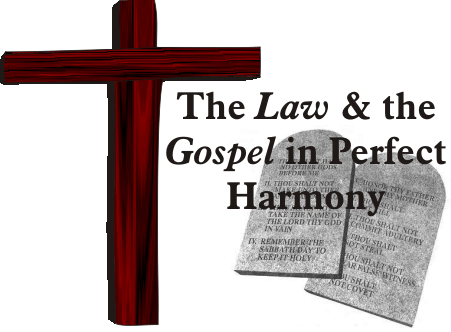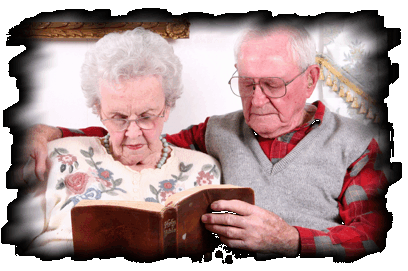
It is as we behold Him, as the light from our Saviour falls upon us, that we see the sinfulness of our own hearts.
We may have flattered ourselves that our life has been upright, that our moral character is correct, and think that we need not humble the heart before God, like the common sinner: but when the light from Christ shines into our souls, we shall see how impure we are; we shall discern the selfishness of motive, the enmity against God, that has defiled every act of life. Then we shall know that our own righteousness is indeed as filthy rags, and that the blood of Christ alone can cleanse us from the defilement of sin, and renew our hearts in His own likeness.
One ray of the glory of God, one gleam of the purity of Christ penetrating the soul, makes every spot of defilement painfully distinct and lays bare the deformity and defects of the human character. It makes apparent the unhallowed desires, the infidelity of the heart, the impurity of the lips. The sinner’s acts of disloyalty in making void the law of God are exposed to his sight and his spirit is stricken and afflicted under the searching influence of the Spirit of God. He loathes himself as he views the pure, spotless character of Christ.
Paul says that as "touching the righteousness which is in the law" —as far as outward acts were concerned—he was "blameless" (Philippians 3:6); but when the spiritual character of the law was discerned, he saw himself a sinner.
without the law once: but when the commandment came, sin revived, and I died." Romans 7:9. When he saw the spiritual nature of the law, sin appeared in its true hideousness, and his self-esteem was gone.
If you see your sinfulness, do not wait to make yourself better. How many there are who think they are not good enough to come to Christ. Do you expect to become better through your own efforts? "Can the Ethiopian change his skin, or the leopard his spots? then may ye also do good, that are accustomed to do evil."Jeremiah 13:23. There is help for us only in God. We must not wait for stronger persuasions, for better opportunities, or for holier tempers. We can do nothing of ourselves. We must come to Christ just as we are.
But let none deceive themselves with the thought that God, in His great love and mercy, will yet save even the rejecters of His grace. The exceeding sinfulness of sin can be estimated only in the light of the cross. When men urge that God is too good to cast off the sinner, let them look to Calvary. It was because there was no other way in which man could be saved, because without this sacrifice it was impossible for the human race to escape from the defiling power of sin and be restored to communion with holy beings, impossible for them again to become partakers of spiritual life—it was because of this that Christ took upon Himself the guilt of the disobedient and suffered in the sinner’s stead. The love and suffering and death of the Son of Judged by the letter of the law as men apply it to the outward life, he had abstained from sin, but when he looked into the depths of its holy precepts, and saw himself as God saw him, he bowed in humiliation and confessed his guilt. He says, "I was alive God all testify to the terrible enormity of sin and declare that there is no escape from its power, no hope of the higher life but through the submission of the soul to Christ.
Beware of procrastination. Do not put off the work of forsaking your sins and seeking purity of heart through Jesus. Here is where thousands upon thousands have erred to their eternal loss. I will not here dwell upon the shortness and uncertainty of life, but there is a terrible danger—a danger not sufficiently understood—in delaying to yield to the pleading voice of God’s Holy Spirit, in choosing to live in sin, for such this delay really is. Sin, however small it may be esteemed, can be indulged in only at the peril of infinite loss. What we do not overcome will overcome us and work out our destruction.
| Love to Christ will be the spring of action. Those who feel the constraining love of God do not ask how little may be given to meet the requirements of God. |
There are those who profess to serve God, while they rely upon their own efforts to obey His law, to form a right character, and secure salvation. Their hearts are not moved by any deep sense of the love of Christ, but they seek to perform the duties of the Christian life as that which God requires of them in order to gain heaven. Such religion is worth nothing. When Christ dwells in the heart, the soul will be so filled with His love, with the joy of communion with Him, that it will cleave to Him, and in the contemplation of Him, self will be forgotten. Love to Christ will be the spring of action. Those who feel the constraining love of God do not ask how little may be given to meet the requirements of God; they do not ask for the lowest standard, but aim at perfect conformity to the will of their Redeemer. With earnest desire they yield all and manifest an interest proportionate to the value of the object which they seek. A profession of Christ without this deep love is mere talk, dry formality, and heavy drudgery.
The effort to earn salvation by one’s own works inevitably leads men to pile up human exactions as a barrier against sin. For, seeing that they fail to keep the law, they will devise rules and regulations of their own to force themselves to obey. All this turns the mind away from God to self. His love dies out of the heart, and with it perishes love for his fellow men. A system of human invention, with its countless exactions, will lead its advocates to judge all who come short of the prescribed human standard. The atmosphere of selfish and narrow criticism stifles the noble and generous emotions and causes men to become self-centered judges and petty spies.
There are two errors against which the children of God, particularly those who have just come to trust in His grace, especially need to guard. The first, already dwelt upon, is that of looking to their own works, trusting to anything they can do to bring themselves into harmony with God. He who is trying to become holy by his own works in keeping the law, is attempting an impossibility. All that man can do without Christ is polluted with seffishness and sin. It is the grace of Christ alone, through faith, that can make us holy.
The opposite and no less dangerous error is that belief in Christ releases men from keeping the law of God; that since by faith alone we become partakers of the grace of Christ, our works have nothing to do with our redemption.
But notice here that obedience is not a mere outward compliance, but the service of love. The law of God is an expression of His very nature; it is an embodiment of the great principle of love, and hence is the foundation of His government in heaven and earth. If our hearts are renewed in the likeness of God, if the divine love is implanted in the soul, will not the law of God be carried out in the life? When the principle of love is implanted in the heart, when man is renewed after the image of Him that created him, the new-covenant promise is fulfilled, "I will put My laws into their hearts, and in their minds will I write them." Hebrews 10:16. And if the law is written in the heart, will it not shape the life? Obedience—the service and allegiance of love—is the true sign of discipleship. Thus the Scripture says, "This is the love of God, that we keep His commandments." "He that saith, I know Him, and keepeth not His commandments, is a liar, and the truth is not in him." 1 John 5:3; 2:4. Instead of releasing man from obedience, it is faith, and faith only, that makes us partakers of the grace of Christ, which enables us to render obedience.
We do not earn salvation by our obedience; for salvation is the free gift of God, to be received by faith. But obedience is the fruit of faith. "Ye know that He was manifested to take away our sins; and in Him is no sin. Whosoever abideth in Him sinneth not: whosoever sinneth hath not seen Him, neither known Him." 1 John 3:5, 6. Here is the true test. If we abide in Christ, if the love of God dwells in us, our feelings, our thoughts, our purposes, our actions, will be in harmony with the will of God as expressed in the precepts of His holy law. "Little children, let no man deceive you: he that doeth righteousness is righteous, even as He is righteous." 1 John 3:7. Righteousness is defined by the standard of God’s holy law, as expressed in the ten commandments given on Sinai.
That so-called faith in Christ which professes to release men from the obligation of obedience to God, is not faith, but presumption. "By grace are ye saved through faith." But "faith, if it hath not works, is dead." Ephesians 2:8; James 2:17. Jesus said of Himself before He came to earth, "I delight to do Thy will, 0 My God: yea, Thy law is within My heart." Psalm 40:8. And just before He ascended again to heaven He declared, "I have kept My Father’s commandments, and abide in His love." John 15:10. The Scripture says, "Hereby we do know that we know Him, if we keep His commandments.... He that saith he abideth in Him ought himself also so to walk even as He walked." 1 John 2:3-6. "Because Christ also suffered for us, leaving us an example, that ye should follow His steps." 1 Peter 2:21.
The condition of eternal life is now just what it always has been—just what it was in Paradise before the fall of our first parents—perfect obedience to the law of God, perfect righteousness. if eternal life were granted on any condition short of this, then the happiness of the whole universe would he imperiled. The way would he open for sin, with all its train of woe and misery, to be immortalized.
It was possible for Adam, before the fall, to form a righteous character by obedience to God’s law. But he failed to do this, and because of his sin our natures are fallen and we cannot make ourselves righteous. Since we are sinful and unholy, we cannot perfectly obey the holy law. We have no righteousness of our own with which to meet the claims of the law of God. But Christ has made a way of escape for us. He lived on earth amid trials and temptations such as we have to meet. He lived a sinless life. He died for us and now He offers to take our sins and give us His righteousness. If you give yourself to Him, and accept Him as your Saviour, then, sinful as your life may have been, for His sake you are accounted righteous. Christ’s character stands in place of your character, and you are accepted before God just as if you had not sinned.
More than this, Christ changes the heart, lie abides in your heart by faith. You are to maintain this connection with Christ by faith and the continual surrender of your will to Him, and SO long as you do this, He will work in you to will and to do according to His good pleasure. So you may say, "The life which I now live in the flesh I live by the faith of the Son of God, who loved me, and gave Himself for me." Galatians 2:20. So Jesus said to His disciples, "It is not ye that speak, hut the Spirit of your Father which speaketh in you." Matthew 10:20. Then with Christ working in you, you will manifest the same spirit and do the same good works—works of righteousness and obedience.
So we have nothing in ourselves of which to boast. We have no ground for self-exaltation. Our only ground of hope is in the righteousness of Christ imputed to us, and in that wrought by His Spirit working in and through us.
"Abide in Me, and I in you. As the branch cannot bear fruit of itself, except it abide in the vine; no more can ye, except ye abide in Me.... Without Me ye can do nothing." John 15:4, 5. You are just as dependent upon Christ in order to live a holy life as is the branch upon the parent stock for growth and fruitfulness. Apart from Him you have no life. You have no power to resist temptation or to grow in grace and holiness. Abiding in Him, you may flourish. Drawing your life from Him, you will not wither nor be fruitless. You will he like a tree planted by the rivers of water.
Many have an idea that they must do some part of the work alone. They have trusted in Christ for the forgiveness of sin, but now they seek by their own efforts to live aright. But every such effort must fail. Jesus says, "Without Me ye can do nothing." Do you ask, "how am I to abide in Christ?" In the same way as you received Him at first. "As ye have therefore received Christ Jesus the I.ord, so walk ye in Him." "The just shall live by faith." Colossians 2:6; Hebrews 10:38. You gave yourself to God, to he His wholly, to serve and obey Him, and you took Christ as your Saviour.

Our growth in grace, our joy, our usefulness—all depend upon our union with Christ. It is by communion with Him daily, hourly, by abiding in Him, that we are to grow in grace. He is not only the Author, hut the Finisher of our faith. It is Christ first and last and always. He is to he with us, not only at the beginning and the end of our course, but at every step of the way. David says, "1 have set the Lord always before me: because He is at my right hand, I shall not be moved. "Psalm 168."
|
